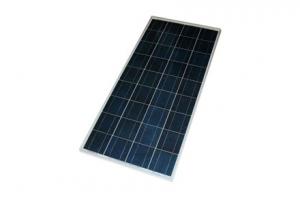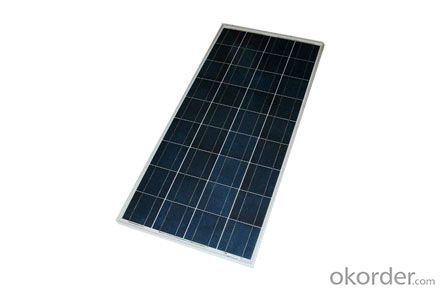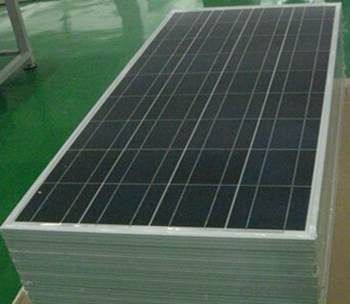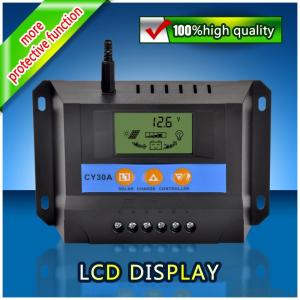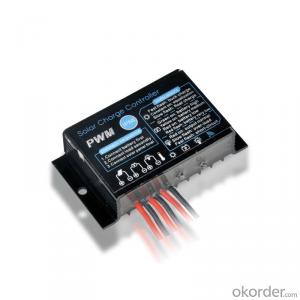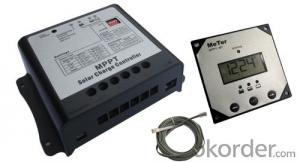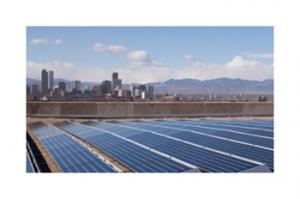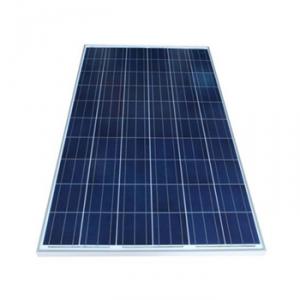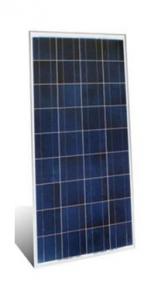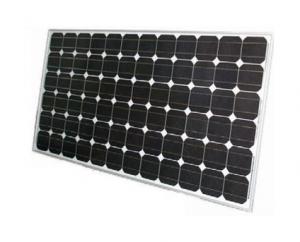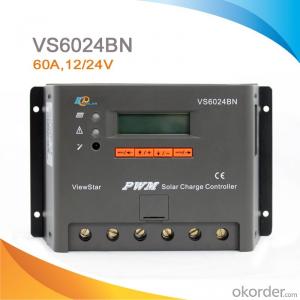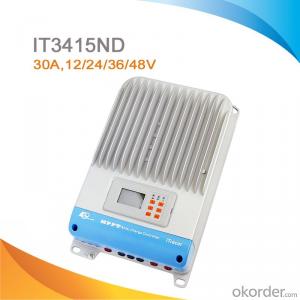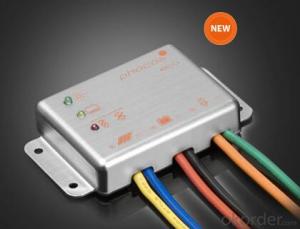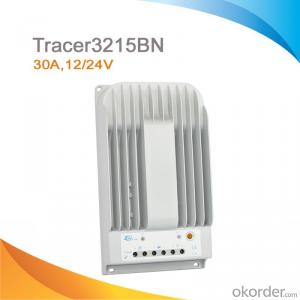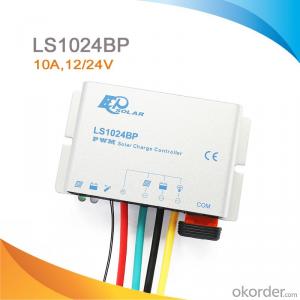Solar Controllers Ocala Fl - Poly-Crystalline 140W Solar Modules 156*156 Module
- Loading Port:
- China Main Port
- Payment Terms:
- TT or LC
- Min Order Qty:
- -
- Supply Capability:
- -
OKorder Service Pledge
OKorder Financial Service
You Might Also Like
PV systems use the most abundant energy source on the planet, solar radiation, to generate electricity. They are silent, consume no fuel and generate no pollution. They also contribute to the reduction of greenhouse gas emissions; a 2kW PV system on a house will prevent the emission of about 40 tonnes of CO2 during its projected 30 year lifetime. Furthermore, the use of PV will reduce your electricity bills and exposure to fluctuating and steadily rising electricity prices.
Customers benefit from our progressive system innovations. Around the world, we meet our customers' desire for the greatest possible reliability, long-term performance and aesthetic integration. No matter which kind of roof – we always have the right solution.
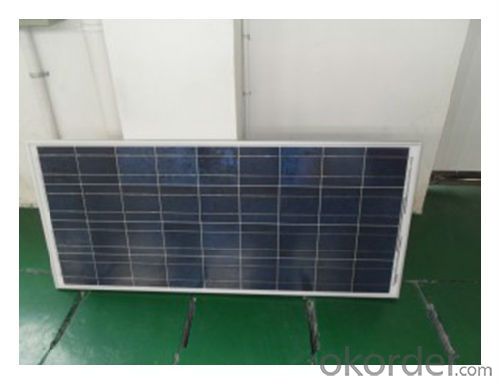
Max-power (W) | 140 |
Max-Power Voltage (V) | 18.3 |
Max-Power Current (A) | 7.65 |
Open-Circuit Voltage (V) | 21.95 |
Short-Circuit Current (A) | 8.25 |
Mechanical Characteristics
Cable type, Diameter and Length | 4mm2, TUV certified, 1000mm |
Type of Connector | Compatible with MC4 plug |
Arrangement of cells | 4*9 |
Cell Size | 156*156 |
Dimension | 1482*676*40 |
Weight | 12Kg |
Glass, Type and Thickness | High Transmission, Low Iron, Tempered Glass 3.2mm |
Features
Guaranteed positive tolerance 0/+5w ensures power output reliability
Strong aluminum frames module can bear snow loads up to 5400Pa and wind loads up to 2400Pa.
Excellent performance under low light environments (mornings evenings and cloudy days)
12 years for product defects in materials and workmanship and 25 years for 80% of warranted minimum power.
Certifications and standards: IEC 61215.
Manufactured according to International Quality and Environment Management System (ISO9001, ISO14100).
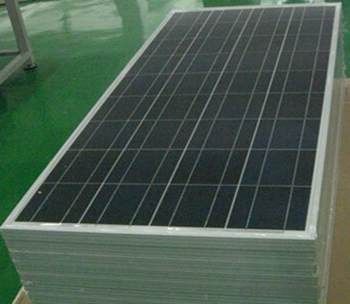
FAQ
Q: Do you have any MOQ limit?
Our MOQ is 200 pieces.
Q: How long is the warranty period for the solar modules?
15 years 90% of its nominal power rating.
25 years 80% of its nominal power rating
Q: What kind of loads can I run on PV?
With a correctly designed PV system you can power almost any electrical load. However, as the load size increases the expense also increases. Loads like hot water heaters, air conditioners, room heaters and electric stoves should be avoided. The added cost of trying to power loads like these is very cost prohibitive. If these loads have to be powered it will be a lot less expensive to change the appliance to use an alternative fuel type like propane.
Q: When do I need a charge controller and why?
The safest way to figure out if you need a charge controller is to take Battery Amp Hour Capacity and divide this by the Solar Panel max. power amp rating. If the quotient is above 200, you don't need a controller. If the number is less than 200 than you need a controller.
- Q: Can a solar controller be used with solar-powered refrigerators?
- Yes, a solar controller can be used with solar-powered refrigerators. A solar controller regulates the voltage and current from solar panels to ensure efficient charging of batteries. In the case of solar-powered refrigerators, a solar controller helps manage the power supply and prevent overcharging or damage to the batteries, allowing for optimal functioning of the refrigerator.
- Q: Can a solar controller be used with different types of solar batteries?
- Yes, a solar controller can be used with different types of solar batteries as long as the voltage and charging parameters are compatible with the specific battery type. However, it is important to ensure that the controller is designed to support the specific chemistry and requirements of the battery to optimize its performance and lifespan.
- Q: Can a solar controller be used in a solar-powered electric bus charging system?
- Yes, a solar controller can be used in a solar-powered electric bus charging system. A solar controller helps regulate the flow of electricity from the solar panels to the batteries, ensuring efficient charging and preventing overcharging or damage to the batteries. It is an essential component in managing the charging process in a solar-powered electric bus charging system.
- Q: Can a solar controller be used with a solar-powered signage system?
- Yes, a solar controller can be used with a solar-powered signage system. A solar controller is responsible for regulating the charging and discharging of batteries in a solar-powered system. In the case of a solar-powered signage system, the solar controller will help optimize the energy generated by the solar panels and ensure that the batteries are charged efficiently. It will also protect the batteries from overcharging or discharging, extending their lifespan and maintaining the reliability of the signage system.
- Q: Can a solar controller be used with a solar-powered aquaponic system?
- Yes, a solar controller can be used with a solar-powered aquaponic system. A solar controller helps regulate the charging and discharging of batteries in a solar-powered system, ensuring the efficient use of solar energy. In an aquaponic system, the solar controller can be used to power pumps, lights, and other components, providing a sustainable and environmentally friendly solution for managing the system's energy needs.
- Q: Can a solar controller be used with solar panels that are located far away from the batteries?
- Yes, a solar controller can be used with solar panels that are located far away from the batteries. The purpose of a solar controller is to regulate the charging of batteries from solar panels, ensuring that the batteries are not overcharged or damaged. In a system where the solar panels are located far away from the batteries, the controller can be placed near the batteries to regulate the charging process effectively. The controller can be connected to the solar panels through appropriately sized wires to minimize voltage drop and energy loss over the distance. It is important to choose the right wire gauge to minimize resistance and ensure efficient energy transfer. Additionally, it is advisable to consider the voltage drop over distance and use appropriate wire size calculations or consult with a professional to ensure the setup is optimized for maximum efficiency.
- Q: Can a solar controller be used with a solar-powered chicken coop?
- Yes, a solar controller can be used with a solar-powered chicken coop. A solar controller is responsible for regulating the flow of electricity from the solar panels to the batteries, preventing overcharging and optimizing the system's performance. It ensures that the batteries are charged properly and efficiently. In a solar-powered chicken coop, a solar controller would be essential to manage the power generated by the solar panels and ensure reliable energy supply for lighting, ventilation, and any other electrical needs of the coop.
- Q: What is the maximum battery voltage that a solar controller can handle?
- The maximum battery voltage that a solar controller can handle depends on the specific model and manufacturer. It typically ranges from 12 volts to 48 volts, but there are some controllers available that can handle higher voltages. It is important to check the specifications of the controller to ensure compatibility with the battery voltage being used.
- Q: How does a solar controller handle battery capacity testing and calibration?
- A solar controller handles battery capacity testing and calibration by monitoring the voltage and current flow in and out of the battery. It measures the battery's voltage levels to determine its state of charge and uses this information to calibrate its charging and discharging parameters. This ensures that the battery is charged efficiently and prevents overcharging or deep discharging, which can damage the battery. Additionally, some advanced solar controllers may also utilize algorithms to estimate the battery's capacity based on its voltage and current readings, providing more accurate capacity testing and calibration.
- Q: Are there any safety concerns with using a solar controller?
- Yes, there can be safety concerns associated with using a solar controller. Some potential safety issues include electrical hazards, such as the risk of electric shock if not installed or used correctly, and fire hazards if the controller malfunctions or overheats. It is important to follow all manufacturer guidelines, use proper wiring and grounding techniques, and regularly inspect and maintain the solar controller to minimize any potential safety risks.
Send your message to us
Solar Controllers Ocala Fl - Poly-Crystalline 140W Solar Modules 156*156 Module
- Loading Port:
- China Main Port
- Payment Terms:
- TT or LC
- Min Order Qty:
- -
- Supply Capability:
- -
OKorder Service Pledge
OKorder Financial Service
Similar products
Hot products
Hot Searches
Related keywords
